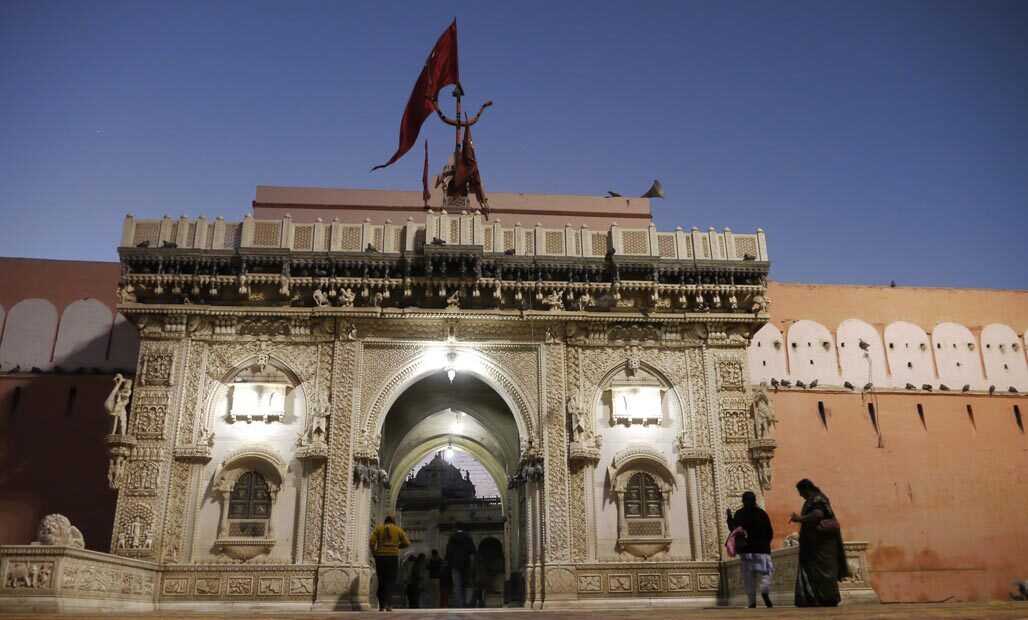Rajasthan’s Temple of Rats: A Unique Spiritual Haven

Rajasthan, the vibrant and culturally rich state in India, is home to a myriad of fascinating temples that attract millions of devotees and tourists alike. Among these temples, one stands out as truly unique and captivating – the Temple of Rats. Nestled in the heart of the historic town of Deshnoke, this temple has gained worldwide fame for its extraordinary inhabitants, who are revered and worshipped by visitors from all walks of life. In this blog post, we will delve into the intriguing history, beliefs, and experiences surrounding the Temple of Rats in Rajasthan.
- A Historical and Mythical Background:
The Temple of Rats, also known as Karni Mata Temple, has a storied past that dates back several centuries. Legend has it that Karni Mata, a revered Hindu mystic and an incarnation of Goddess Durga, possessed supernatural powers. According to the folklore, when her stepson drowned, she attempted to bring him back to life. Yama, the God of Death, initially refused, but Karni Mata’s persistence convinced him to grant her stepson and all her male descendants the status of rats during their earthly existence.
- The Rat as a Sacred Being:
Contrary to the common perception of rats as pests, the rats in the Temple of Rats are considered sacred and believed to be the reincarnated descendants of Karni Mata. These rats, known as “kabbas,” are revered as divine messengers and are protected and worshipped by the temple’s devotees. The temple complex provides a safe haven for these rats, offering them food, shelter, and protection from predators.
- Spiritual Significance and Pilgrimage:
The Temple of Rats holds immense spiritual significance for followers of Karni Mata and attracts pilgrims from all over the world. Devotees believe that seeking the blessings of the rats brings good fortune, prosperity, and protection from evil forces. It is customary for visitors to offer sweets, grains, and milk to the rats as a token of their devotion. Observing the rats scurrying around the temple complex is seen as a divine experience and is believed to bring blessings upon the devotees.
- Architectural Marvel and Cultural Experience:
Beyond the awe-inspiring spiritual aspect, the temple itself is a remarkable architectural marvel. Built in the late 19th century, the structure showcases intricate stone carvings, ornate pillars, and a blend of Rajput and Mughal architectural styles. The vibrant ambiance, the scent of incense, and the rhythmic chants create an immersive cultural experience for visitors.
- Ethical Considerations and Rat Conservation:
While the Temple of Rats attracts tourists and curious visitors, it’s essential to address the ethical considerations and concerns surrounding the treatment and well-being of the rats. The temple authorities have taken measures to ensure the rats’ welfare by providing them with food, water, and veterinary care. Additionally, visitors are encouraged to maintain cleanliness and respect the animals’ habitat to ensure their well-being.
The Temple of Rats in Rajasthan is a testament to the rich tapestry of spirituality, mythology, and cultural heritage that Rajasthan offers. This unique temple provides a fascinating glimpse into the diverse beliefs and practices found within Hinduism. While the temple’s peculiar inhabitants may initially evoke curiosity, it is the spiritual devotion and cultural immersion that make this place truly enchanting. A visit to the Temple of Rats is an opportunity to witness the harmonious coexistence between humans and animals and explore the depths of faith in an extraordinary setting.
Picture Courtesy: Google/images are subject to copyright








